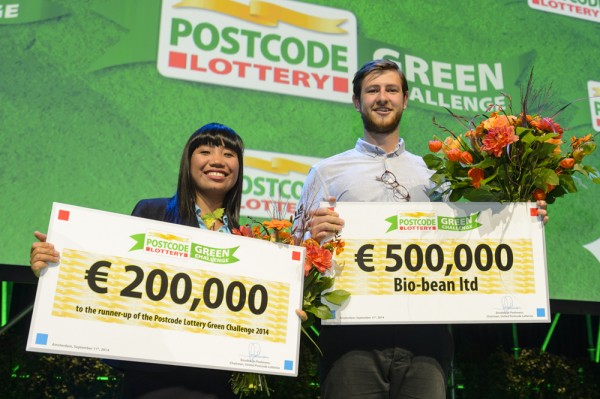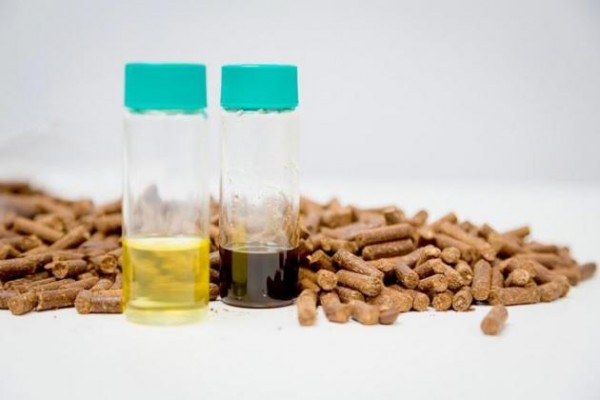How a Young UK Company Is Changing the Value of Coffee Grounds

Arthur Kay, with a big, fake check representing big, real money for his company Bio-Bean
The past decade has seen countless attempts on the part of the researchers and environmental stewards to find a legitimate use for used coffee grounds that would otherwise be sent to landfills. Here are just a few: biodiesel, livestock feed, liquor, compost, odor neutralizer.
Promising ideas, all, but oftentimes lacking the kind of financial backing from the private sector that might support wide-scale practical use.
Bio-Bean, a less-than-year-old London-based company, is hoping to change that trend, recently receiving €500,000 from the Postcode Green Lottery Challenge from the Dutch Lottery. Founded by 23-year-old entrepreneur Arthur Kay, who first conceived of Bio-Bean while designing a self-sustaining roastery and cafe as part of his studies in architecture, and COO Benjamin Harriman, Bio-Bean has been up and running since January of this year, developing its technology and infrastructure to convert used coffee grounds into advanced biofuels.
The Postcode Lottery challenge since 2007 has solicited calls for sustainable, creative and innovative products and services that reduce carbon emissions, and this year the competition drew 324 entries from 57 countries. Kay said the substantial prize money will allow Bio-Bean to scale up its UK operations, while also presenting an opportunity for expansion of the model into new international markets, like the United States.
Since initial funding through grants and private sources, as well as some hearty endorsements from London Mayor Boris Johnson, the Bio-Bean team is already up to eight employees, with high-powered advisory board with representatives of the green energy and infrastructure in the U.K. and U.S. The company hopes to have a waste conversion facility up and running by the end of this year, producing biodiesel and biomass pellets through a biochemical process.
“It’s moving pretty fast, but that’s the appetite of our investors and advisers, including the companies that are involved,” Kay recently told Roast Magazine, as part of a feature on the imminent reality of producing fuel from coffee waste. “In a very crowded market, which the coffee industry is, you need differentiators. Apart from all the environmental benefits of our fuel, what bio-bean can provide is something that can make a company stand out.”
For its part, the coffee industry has no shortage of waste, with London coffee shops alone producing more than 200,000 tons of coffee grounds per year, according to Bio-Bean. “Getting the coffee we need is no longer the issue,” Kay told Roast. “Our issue is building a plant big enough to process it.”
To that end, €500,000 can’t hurt.

